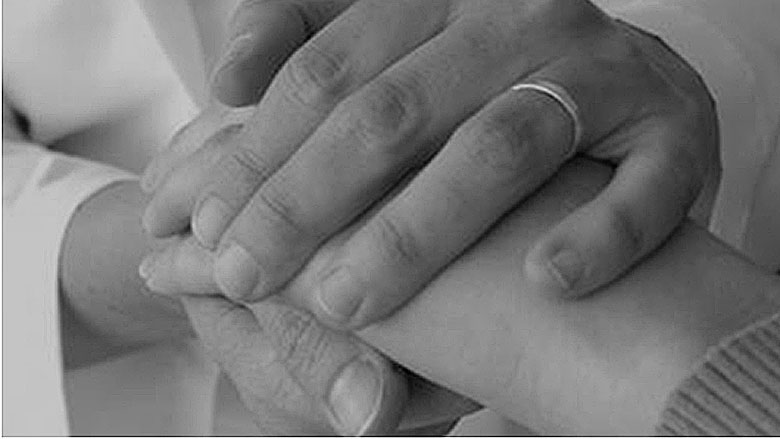Mass. Gen. Hospital takes global lead with Human Trafficking Initiative
By Mary McCleary | June 28, 2016, 13:19 EDT
 (Courtesy of Massachusetts General Hospital)
(Courtesy of Massachusetts General Hospital) Although often under-reported, human trafficking is a serious public health problem. Nearly 21 million people worldwide are victims of forced labor and sexual exploitation. In the U.S., the problem persists under the guise of labor trafficking, domestic servitude, and sex slavery. Survivors of other forms of human trafficking, such as child soldiering and organ trafficking, also come to the U.S. as either immigrants or asylum seekers. To address the growing phenomenon, the Massachusetts General Hospital (MGH) founded the Human Trafficking Initiative in 2008. It also launched the MGH Freedom Clinic, a ground-breaking program that provides comprehensive treatment for traumatized victims and survivors.
Dr. Wendy Macias-Konstantopoulos teaches emergency medicine at Harvard Medical School, and was instrumental in founding the MGH Human Trafficking Initiative. The program is housed in the MGH Emergency Department’s Division of Global Health & Human Rights. The ever-busy physician wears several hats as Director of the MGH Human Trafficking Initiative, as well as Chief Medical and Executive Director of the MGH Freedom Clinic, its cornerstone program.

Dr. Wendy Macias-Konstantopoulos (Courtesy of MGH)
Although born in the U.S., Macias-Konstantopoulos spent many years of her youth living abroad. During her travels, she witnessed widespread exploitation and disparity among the populations of developing nations. Moved by the experience, she resolved to promote social justice and help the less fortunate.
Macias-Konstantopoulos decided to pursue emergency medicine because of its proximity to real-world situations while treating diverse cross-sections of society. “In the emergency room, you see a Fortune 500 CEO in one room, and two doors down, you see a homeless person struggling with addiction,” she said. “We treat all patients, irrespective of their backgrounds.”
“We used to call a sex-trafficked adolescent a ‘teenage prostitute’, but now we understand and recognize that there is always an adult behind the scenes manipulating the child. It is not the child who wakes up one day and suddenly decides to engage in that line of work.”
— Dr. Wendy Macias-Konstantopoulos
During her residency training, Macias-Konstantopoulos also pursued studies in humanitarian crises, and was able to work in Indonesia at a hospital clinic for human trafficking survivors. The medical clinic also functioned as a safe house for those who had nowhere else to go. The hospital and safe house were closely affiliated so affected people could receive medical help. The experience demonstrated how important medical attention is for victims, since their health is seriously neglected while they are being exploited. As a result, Macias-Konstantopoulos decided to make caring for vulnerable, underserved populations a central focus of her medical practice.
“Clearly, similar types of abuse were occurring here in the United States, but we just didn’t know what to call it,” she explained. “We used to call a sex-trafficked adolescent a ‘teenage prostitute’, but now we understand and recognize that there is always an adult behind the scenes manipulating the child. It is not the child who wakes up one day and suddenly decides to engage in that line of work.”
Macias-Konstantopoulos noted that although Massachusetts was one of the last states to enact human trafficking legislation, its careful approach had the benefit of observing what worked in other states. Consequently, legislators passed comprehensive laws that recognize that youths are trafficking victims, and hence should not be put in jail.
With her background and experience, Macias-Konstantopoulos was well positioned to help launch the Human Trafficking Initiative at Mass General Hospital. The project was designed with four specialized approaches to address and combat human trafficking. The first is to conduct local, national and global research. The second is the education and training of health care professionals. The third is to promote policy advocacy, and the fourth is to provide clinical care at the MGH Freedom Clinic.
“Instead of short 15-minute appointments with their primary care doctors who barely know their names, we give them a full hour with their doctor. We are a mission-driven clinic and operate outside the traditional business model of care.”
— Dr. Wendy Macias-Konstantopoulos
The clinic provides free care for victims and survivors of any form of human trafficking, including labor, sex and organ trafficking, from the greater Boston area and beyond. The services are comprehensive for all patients aged 13 years and older. The clinic’s concierge-like program offers free treatment for acute and chronic illnesses, injuries, annual physical exams, vaccinations, testing and treatment of infectious diseases, mental health services, and case management. It also refers patients to sub-specialists whenever necessary, including substance use treatment.
Macias-Konstantopoulos noted that prior to coming to the Freedom Clinic for their treatment, trafficking survivors received their care in parcels, based on episodic illness or injury. “We offer them holistic, comprehensive, and trauma-informed care. All our providers are dually-trained in internal medicine and pediatrics,” she elaborated. “We treat the physical health, mental health, and psycho-social needs of victims in parallel. Instead of short 15 minute appointments with their primary care doctors who barely know their names, we give them a full hour with their doctor. We are a mission-driven clinic and operate outside the traditional business model of care.”
The Freedom Clinic team consists of Macias-Konstantopoulos, four pediatricians who are the primary care doctors, a nurse practitioner, two psychologists, one psychiatrist, an access nurse, and a licensed social worker who specializes in complex trauma therapies. Additionally, the Mass General Hospital patient financial service program assists Freedom Clinic patients to obtain insurance for times when they need care outside the clinic. Often, victims have no idea how to navigate the health care system, since they have been overwhelmed by living their trauma or facing the long-term effects of their exploitation.
“The health care system has a crucial role to play in helping human trafficking victims,” Macias-Konstantopoulos observed. She added that health care providers are in a unique position to recognize exploitation, and that the Freedom Clinic is an important resource for the community. They receive patient referrals from law enforcement, judicial courts, homeless shelters, domestic violence organizations, social service organizations, and even other health care providers from various area hospitals. Since their services are completely free of charge, the Freedom Clinic relies on grants and philanthropic donations to meet their patients’ needs. Macias-Konstantopoulos hopes that more people will learn about their mission, and be inspired to contribute their time, expertise, or money to help trafficking victims recover so they may engage safely and positively in society.
To donate to the Freedom Clinic, please contact: https://giving.massgeneral.org/donate/freedom-clinic/
If you would like more information about the Mass General Freedom Clinic or are interested in referring a client or patient to the clinic, please contact:
Leslie Carabello, Access Nurse/ Care Coordinator at MGH Freedom Clinic
Email: [email protected]
Tel: 617-834-6213
Contact Mary McCleary at [email protected].
NBPHealth










